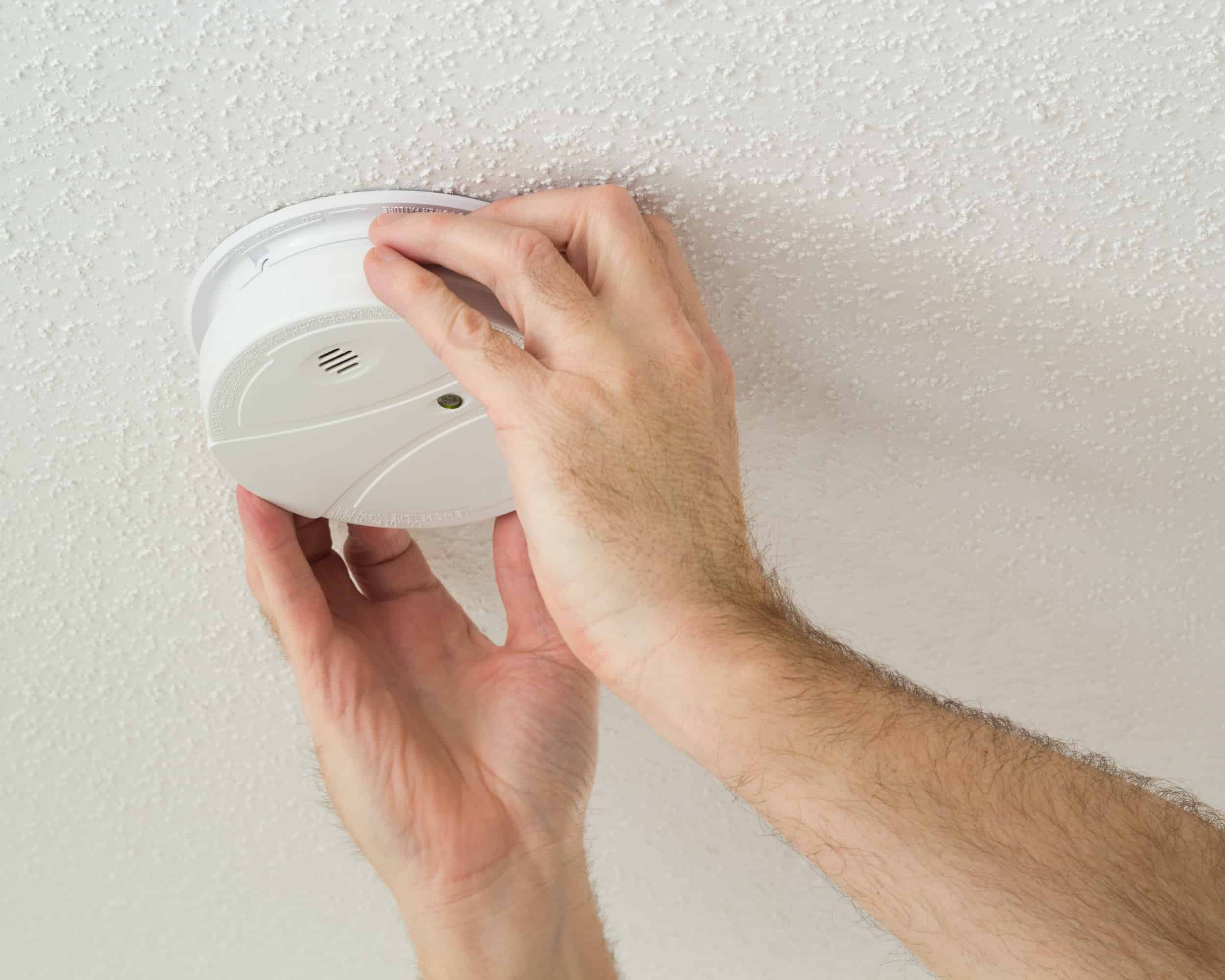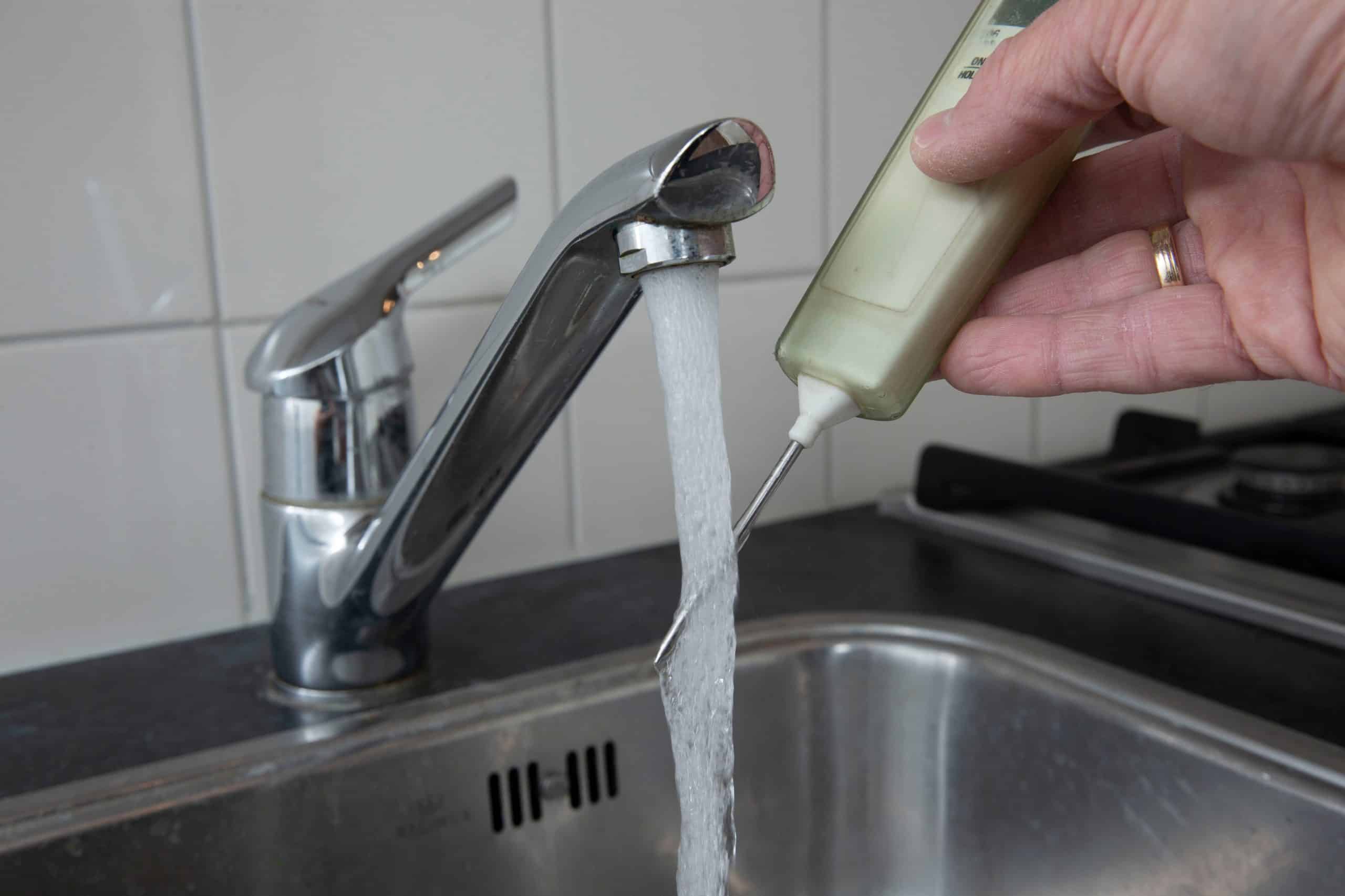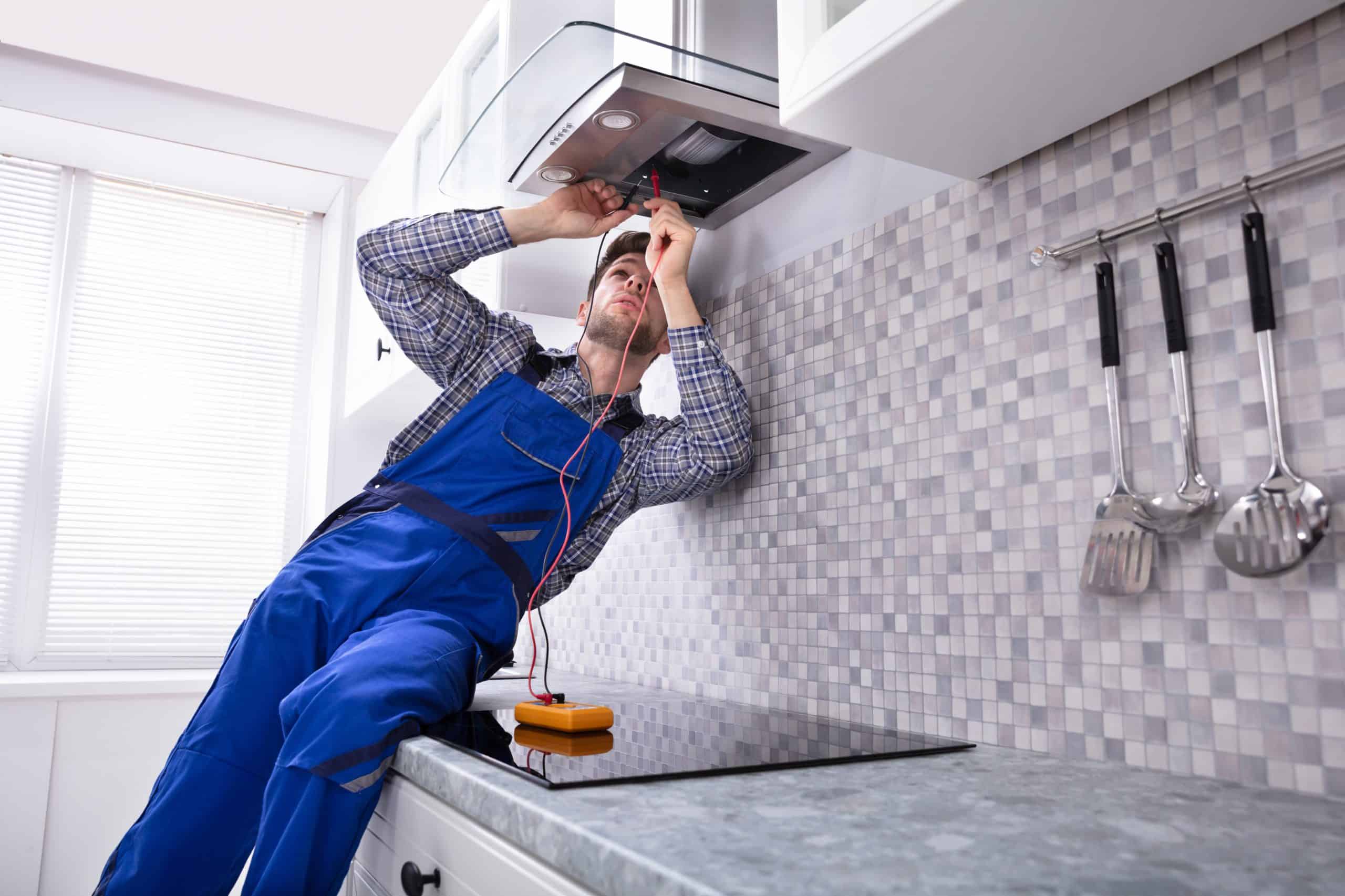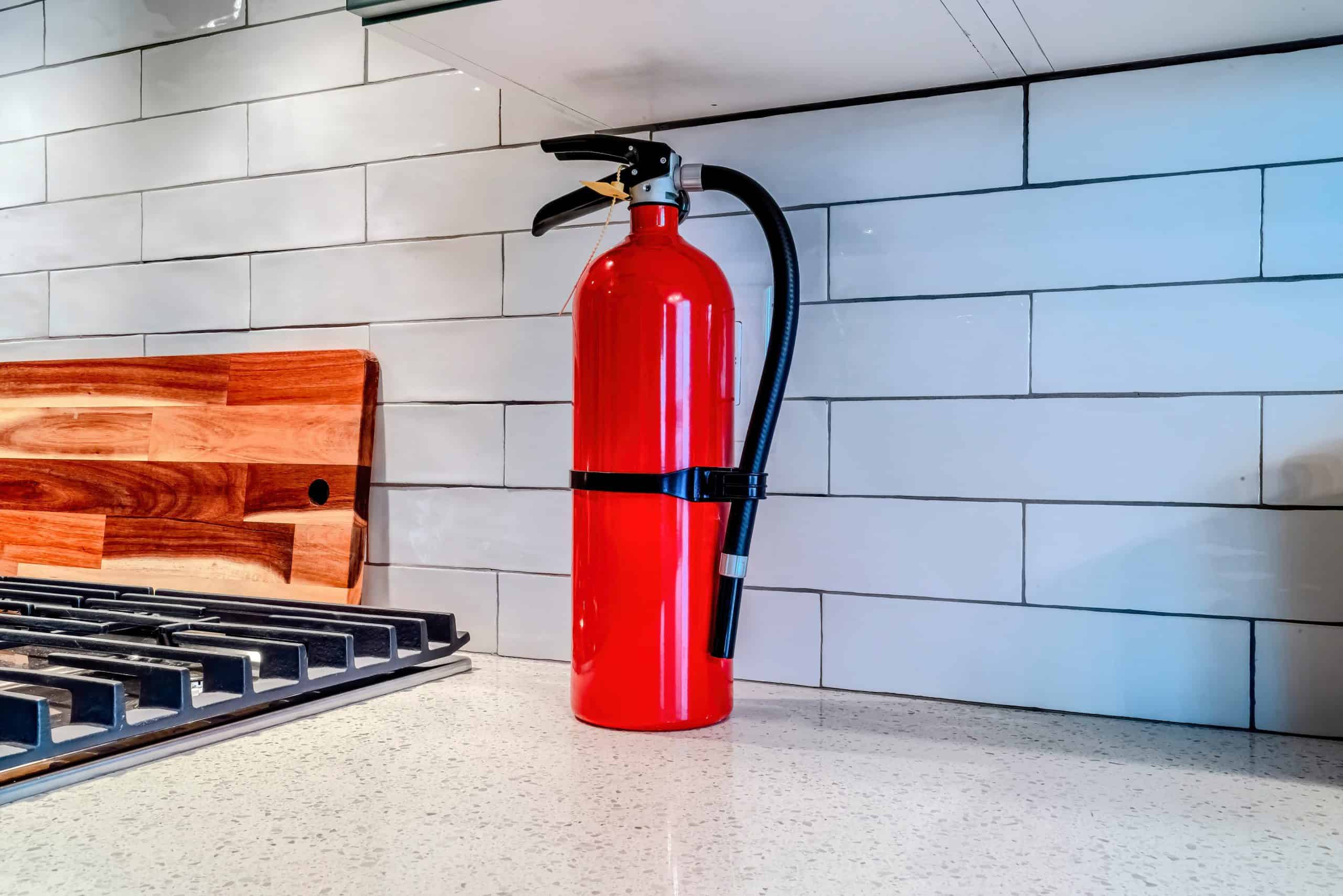Landlord safety certificates are essential if you want to rent out a property. Not only do you need to comply with Scottish and UK law, but you need to ensure the health and safety of your tenants.
At first glance, the certification involved might seem daunting – after all, how many of us know a BS 5839 report from a CP12? Well, no need to worry – we’ve got you covered! This handy guide explains everything you need to know to ensure that your properties are safe and fully compliant.
Which landlord safety certificates do you need to let property in Scotland?
You’ll need six safety certificates to let your property in the private rental sector, unless your property is classed as an HMO, in which case you’ll need an additional two certificates. For anyone new to the rental market, an HMO is a House in Multiple Occupation, meaning that it’s rented out by at least three (unrelated) people who share the bathroom or toilet and kitchen.
Before we get into the details of each certificate, here’s an at-a-glance summary:
| Safety Certificate | Quick summary | |
| 1 | Smoke & Heat Alarm |
The need for smoke and heat alarms is now enshrined in law in Scotland and as such, landlords should adhere to the following: – one smoke alarm in the living room or the room you use most, – one smoke alarm in every hallway and landing, – one heat alarm in the kitchen. |
| 2 | EICR – Electrical Installation Condition Report | This is an important report that needs to be carried out every five years. It involves a qualified electrician examining the electrical installation in the property and issuing a report. |
| 3 | Gas Safety Certificate – CP12 Report | This certificate is issued once a qualified gas engineer has inspected all gas appliances in a property and made sure they are safe. It must be renewed every 12 months. |
| 4 | LRA – Legionella Risk Assessment Certificate | A Legionella Risk Assessment is a form of due diligence that landlords must carry out to protect their tenants from potential Legionella bacteria. The assessment must be carried out by a qualified assessor. |
| 5 | EPC – Energy Performance Certificate | An EPC is a report that measures the energy efficiency of a property. It is a legal requirement for all rental properties in Scotland and must be renewed every 10 years. |
| 6 | PAT – Portable Appliance Testing | PAT testing is a form of due diligence that landlords must carry out to protect their tenants from electrical hazards. The test must be carried out by a qualified engineer. |
The two additional certificates for HMO properties are:
| 7 | BS 5266 Emergency Lighting Certificate *HMO Only | Emergency Lighting Certificates are required for all Houses in Multiple Occupation (HMOs) in Scotland. The certificate must be issued by a qualified engineer. |
| 8 | Portable Fire Extinguisher Report *HMO Only | Portable Fire Extinguisher Reports are required for all HMOs in Scotland. They must be issued by a qualified engineer. |
Landlord safety certificates – the details
Now that you have an overview of all the certification, we’ll look at each requirement in turn.
- Smoke and Heat Alarm
The law in Scotland regarding fire safety standards in homes changed in February 2022. If you’re a landlord, you must now demonstrate that your property has the required smoke and heat alarms, and that these are installed to a satisfactory standard.
All smoke and heat alarms should be mounted on the ceiling and be interlinked. If you have a carbon-fuelled appliance – like a boiler, fire, heater or flue – in any room, you must also have a carbon monoxide detector in that room, but this does not need to be linked to the fire alarms. If an area is open plan, one alarm can cover the whole room provided it can be located where it is no more than 7.5 metres from any point in the room. If your space includes a kitchen area it should be a heat alarm rather than a smoke alarm. Alarms can be either sealed battery or mains powered but must be interlinked.
You must ensure that both alarms comply with the following standards:
- smoke alarms – BS EN14604:2005
- heat alarms – BS 5446-2:2003
If your property is not an HMO, you’re legally required to have your rental property’s smoke alarms and heat alarms checked once every 10 years. However, we strongly recommend having your property’s fire alarms checked on a yearly basis, as smoke and heat alarms can cease to function unexpectedly.
If your property is an HMO, you are legally required to have your smoke and heat alarms checked every year.
- EICR – Electrical Installation Condition Report
One of the most important safety steps you take as a landlord is having an EICR (Electrical Installation Condition Report) carried out. This is a detailed document produced after a qualified electrician has inspected your property’s electrical installation, noting any problems that might pose a risk, as well as any improvements that could be made.
How often do you need to get an EICR?
You’ll need to have an EICR certificate carried out before letting a property for the first time; the certificate is then valid for a maximum of five years.
However, depending on the quality of your property’s electrical installation, your electrician may suggest carrying out EICRs more frequently than every five years. Be sure to follow their advice; after all, you want to make sure your tenants are safe and sound in their rental property.
- Gas safety certificates – CP12
You must have a valid gas safety certificate completed by a Gas Safe Registered engineer. Not only does this prove that your property’s boiler and gas system is safe and maintained in accordance with British standards, it also provides peace of mind for you and your tenants.
The Gas Safety Regulations 2018
The Gas Safety (Installation and Use) (Amendment) Regulations 2018 enable landlords to have their gas safety check up to two months before the date of expiry of the previous certificate and still retain the original deadline date, as if the check had been carried out exactly 12 months after the previous check.
Gas safety certificates – how long are they valid for?
Landlord gas safety certificates expire after 12 months, however, they should be kept for at least two years. It is important to remember to renew your certificate before the 12-month expiry date or you risk having to pay hefty fines and court costs.
Choose the right landlord compliance company
The UK Gas Safe Register doesn’t provide a standard form for gas safety certificates, so paperwork and documentation can vary depending on the landlord compliance company you choose to work with. Experienced and reputable companies will ensure that certificates are presented in the most accessible format for fast viewing of key information.
You can read about gas safety checks in more detail here.
- LRA – Legionella Risk Assessment
Legionella is a form of bacteria typically found in water systems such as water tanks, pipes and air conditioning units. If conditions are favourable, Legionella bacteria may grow, increasing the risk to your tenants of contracting Legionnaires’ disease – a potentially fatal form of pneumonia.
Landlords’ legal obligations
Legionella Risk Assessments (LRA) are a legal requirement for landlords in the UK, and non-compliance could result in large fines and even imprisonment. As a landlord, you have a legal responsibility to ensure tenants’ health and safety by keeping the property safe and free from health hazards like Legionnaires’ disease.
How often should you carry out an LRA?
There is no legislation prescribing how often landlords should review an LRA, but landlords do need to be able to demonstrate that they have acted responsibly regarding their legal duty for their tenants’ health and safety.
We therefore advise any duty-holder managing a rental property to have an LRA done every year; bacteria grows quickly and if your tenant becomes seriously ill due to an outbreak of Legionnaires’ disease, you could be criminally liable.
- EPC – Energy Performance Certificate
An Energy Performance Certificate (EPC) shows your property’s energy efficiency, measured on a scale from A (very efficient) to G (inefficient), giving you a better understanding of how costly it is to power and heat the property. It also shows your property’s Environmental Impact Rating, in terms of carbon dioxide (CO2) emissions.
Landlords and letting agents are legally obliged to have an EPC in place for any property they advertise for rent. A Domestic Energy Assessor (DEA) will conduct a formal evaluation of your property’s energy efficiency and issue the report.
Your EPC will also include suggested measures for improving your property’s energy efficiency and improving your rating. These might include actions such as upgrading to double-glazed windows, upgrading your heating system, installing insulation or switching to energy-efficient lighting.
How long is an EPC valid for?
An EPC remains valid for 10 years, although it’s good practice to renew your certificate after completing any works likely to affect your property’s energy efficiency.
You can read more about EPC requirements for private landlords here.
- PAT – Portable Appliance Testing
As a private landlord in Scotland, you’re required by law to ensure that at the start of a tenancy and throughout its duration, your rental property – and the appliances within it – meet the repairing standard outlined in The Housing (Scotland) Act 2006.
All appliances provided by you must be in a reasonable state of repair and in proper working order – and this is where PAT certificates come in. A PAT (Portable Appliance Test) certificate must be obtained before entering into a tenancy agreement and must be provided to the tenant upon entering into a new tenancy agreement or upon completion of a new PAT certificate.
How long does a PAT certificate last?
PAT certificates expire five years after the date of inspection, but landlords are required to keep them for six years following the date of the appliance inspection.
Although there’s no mandatory inspection rate, it’s important to remember that a lot can happen in five years – it’s over 260 weeks! That’s why we usually advise to have portable appliances in rental properties tested every year – to ensure your tenants and your property are safe.
- Emergency Lighting Certificate – BS 5266 Report *HMO only
The law surrounding emergency lighting in HMOs is technical and variable-dependent; essentially, landlords have a duty to make sure emergency lighting meets legal requirements and to mitigate all reasonably foreseeable fire risks within their HMO property. Any defects in the emergency lighting system should be addressed as soon as reasonably possible.
There are two key elements of the emergency lighting requirements for HMOs in Scotland:
- HMOs must have emergency fire exit signage that is clearly visible and directs tenants toward the nearest or only fire exit.
- HMOs must have emergency lighting that adequately illuminates all fire exit routes in the event of a power cut.
Which certificates do landlords need?
While there’s no official emergency lighting certificate, you’ll need to have your HMO’s emergency lighting tested and certified annually by an electrician. The inspection needs to be reported in accordance with British Standards BS EN 50172:2004 / BS 5266-1-8:2004, and you may find that your electrician has used this to create their own certification.
In addition to these annual tests, landlords should ensure operational tests are carried out and recorded monthly or more frequently.
You should retain these reports in order to demonstrate that you are following your duty to comply with the legal requirements.
- Portable Fire Extinguisher Certificate – BS 5306 Report *HMO Only
Landlords of HMO properties have legal obligations around fire safety, including carrying out a fire risk assessment, implementing fire safety measures and reducing fire risk. Fire extinguishers are essential for making sure your tenants have the means to put out small fires quickly and safely.
What certificates do landlords need?
In Scotland, HMOs are legally required to have appropriate means for fighting fires and to have a regular maintenance schedule. If your property fails on either of these points, it is a criminal offence. Inspectors will usually issue a certificate to confirm that the firefighting equipment is present, placed correctly, and in good working order.
To ensure your property is compliant with fire safety laws, you should make sure to install at least one fire extinguisher in the main hallway and one fire blanket in the kitchen. You should ensure that your fire extinguisher is easily visible and accessible, and less than 30 metres from potential fire-sources. By taking the necessary steps to ensure your property is equipped with the right fire safety equipment, you can reduce the risk of a fire breaking out and keep your tenants safe.
More questions about compliance?
We’ve given you an overview of the six landlord safety certificates you need to let out your property in Scotland, as well as the two additional certificates required for HMO properties – if you have further questions about any of these certificates, you can look up the specific regulatory bodies, check with your local landlord licensing authority, or get in touch with a local service provider.















